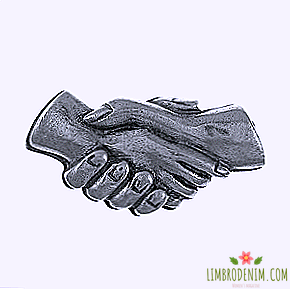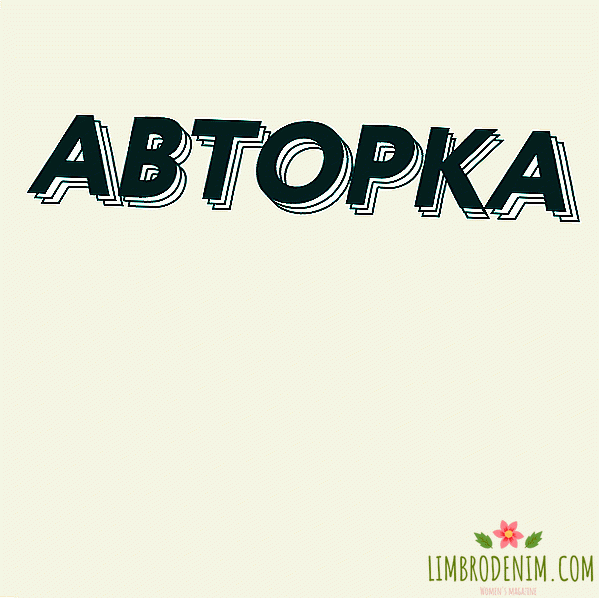Snapchat instead of Facebook: a course on sincerity in social networks
Facebook has a function On This Day ("This Day") - on a separate page shows the posts that you wrote a few years ago, the people with whom you became friends, and other nostalgic information. If you used it at least once, you probably noticed how much our behavior on the social network differed from today. Sometimes it even seems to me that the engineers confused something - it's hard to believe that my friends used to post links to funny videos directly to my page, and I searched the collections of click-sites (then this word, it seems, had not yet been invented) with idiotic billboards .

Today Facebook is our main representation on the Internet. In Russia, the site replaces LinkedIn, a bulletin board, a platform for public discussion; Facebook begins investigative journalism, searches for missing children, and reports on finding a job. The competition for attention in the tape is so high that big brands, media and best friends have to fight, and attention is directly related to the number of likes and comments. I know people who delete statuses or photos, if they do not get likes in the first fifteen minutes, or they attract attention with gifs before important statements. Such is the economics of Facebook at the moment: who likes it more, listens more.
But the function “On This Day” tells us about one more thing - how much baggage we have accumulated in each of the social networks. Here we are followed by suitcases with former works, photos of former lovers, cities that we left, jokes that no longer seem funny to us. It is difficult to forget how many mistakes you made in life when their chronicle is in front of your eyes for 1 hour 51 minutes every day.
This is the exact opposite of the minimalism that has become fashionable to observe in everyday life. We limit the number of things around us, give away unwanted clothes and buy e-books instead of paper ones, so as not to succumb to insane consumption. It is not surprising that in the same way we are ready to edit and recollections: to delete our marks on unsuccessful photos, carefully follow links and subscriptions, to speak about ourselves only what will not be ashamed to retell to descendants. In the words of a classic, we are erecting a non-human digital monument.
The likes and unlimited validity have formed digital etiquette the way we know it. And here in the game comes Snapchat - an application, the concept of which causes sincere bewilderment to some (“How is this used?”), And others - to alarm. The laws that exist, even if only a few years old, seem unshakable to us, so a system where content instantly disappears and the ability to respond to it is limited seems to us somewhat flawed. Say, all this is good only for the fact that teenagers send their naked photos to other teenagers. But Snapchat is much more.
Unlike other social networks, which allow us to build a better version of ourselves, Snapchat is created for another. It is not needed to choose the best pieces of life as a keepsake; you need it to watch your loved ones vomit a rainbow or turn into a tomato. Snatchchat teaches us to live in the moment - and not carefully choose the moment for cataloging the past.
Other social networks have all the imaginable tools for editing your own memories. When I look at my photos from a holiday in Berlin on Instagram, I see pink flamingos, the best shawarma from Foursquare and a selfie from a trendy bar - all in carefully selected filters, angles and with significant signatures. There is no place for small nasty rain, which did not stop the whole trip, and the streets dug up. 90% of my life will never appear in the tab "On This Day" on Facebook, because they are not convincing enough about the magnetism of my interesting personality. But they can find a place in Snapchat, where I can tell my close friends - yes, I’m walking through the mud in the rain, but actually it’s even fun.
The main symbol of the snapshot and its best incarnation is DJ Khaled. Prior to his dizzying careers at Snapchat, he was known as a musician of moderate popularity, mostly shouting his own name on the tracks. His key skills are the ability to gather around him the stars of the first magnitude and sensitively listen to his audience, giving out one popular summer song after another. He is now warming up Beyonce on tour and preparing an album for the release, and his advice on how to achieve success on Snapchat is read by 6 million people.
DJ Khaled sincerely talks about everything he knows about life. His picture of the world consists of "us" and "them": "they" do not want "us" to succeed (and, among other things, have breakfast and rinse their mouths with listerine), but "we" will not stop until we collect all the keys to to success. In many ways, the everyday life of an exceptionally successful DJ is no different from my own: he also puffs and sweats while exercising on the home rug, and also smears coconut oil from head to toe. But he is not only not ashamed to admit it, but also reminds: coconut oil is very important. Why live rough if you can live soft and silky? Admiration for the simplest things that would seem to someone petty, even petty bourgeois, distinguishes the idol of the younger generation from a man who violently rubs coconut oil into skin dried out with central heating.
This is extremely important. Snapchat is not another escaping tool. Exactly the opposite - he teaches us to take life as fully as possible, to approach with open heart to all its pluses and imperfections. Snapchat is designed to encourage sincerity: it’s much easier to express feelings here than in emoji series in messages or “Love” or “Wow” Facebook responses. When life is so tough that a whole can of coconut oil does not help, emotions, friends and irony come to the rescue.
But more importantly, Snapchat teaches us to accept our own imperfections. Kim Kardashian recognized that she was doing about 300 shots in order to find the only successful selfie; and although for most of us this figure is less than an order of magnitude, this tactic is quite natural. We expect that we will be examined under a magnifying glass: here is a double chin, the nose is too wide here, here is a dull facial expression. Snapchat helps us to deal with a culture that infringes upon people who do not wake up in the morning with a perfect hairstyle and complexion like that of an angel.
One of the Snapchat investors, Gary Vaynerchuk, in an interview with Bloomberg Businessweek predicted that the overwhelming majority of those who read the article will receive the application in the next year and a half. I checked it out on my four-year-old niece. Together we fool around with lenses “dog” or “flower wreath” for at least an hour, but we came to the conclusion that Snapchat allows us not only to try on many different masks, but also to come to terms with ourselves.





